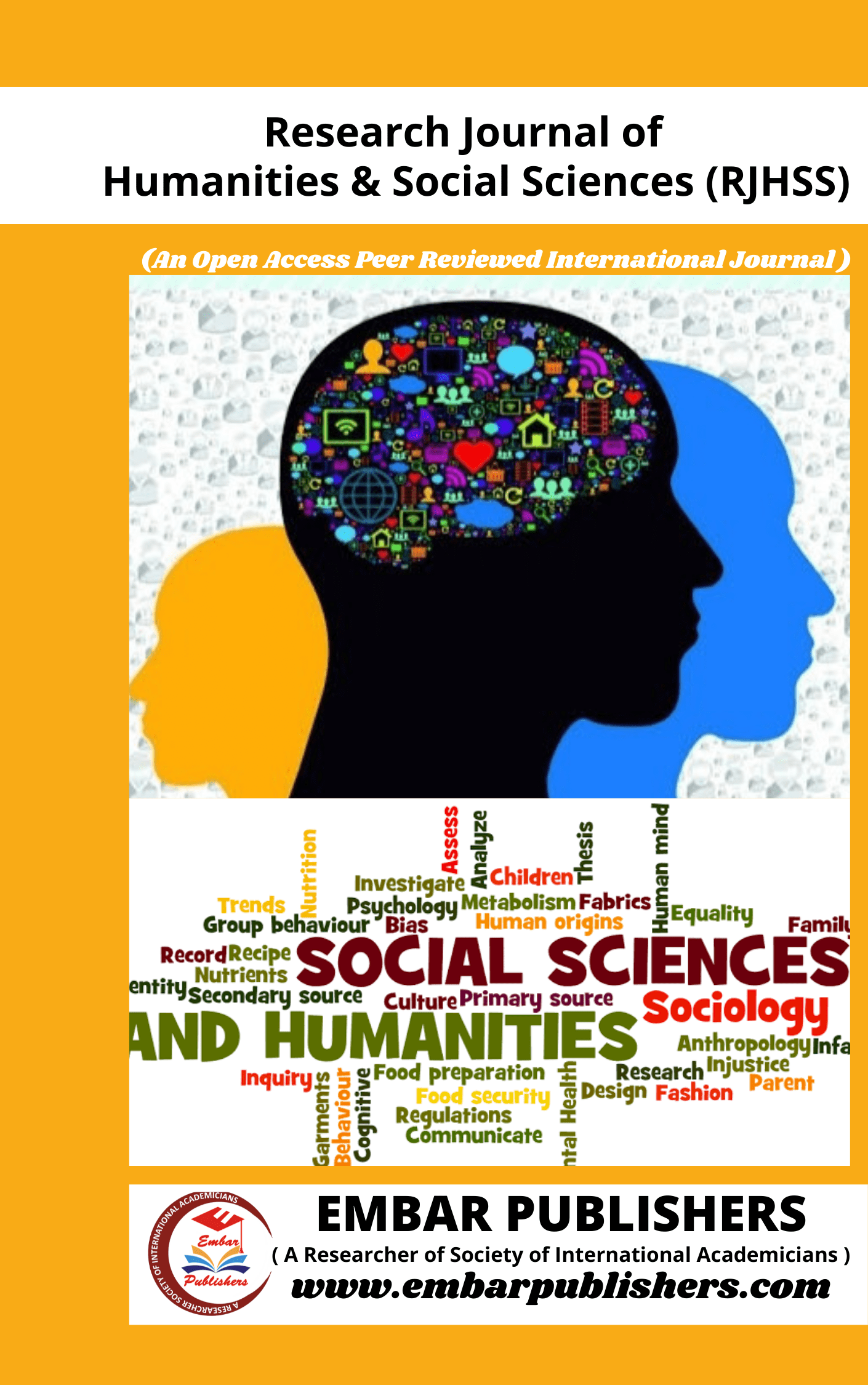
Gender Roles and Expectations in Traditional vs. Modern Societies: A Cross-Cultural Analysis.
Nana Rinkiashvili
Professor of Economics at the Faculty of Social Sciences, Business and Law of Iakob Gogebashvili Telavi State University- Uzbakistan .
DOI: https://doi.org/10.58924/rjhss.v3.iss5.p1
Published Date: 27-Oct, 2024
Keywords: Gender Roles, Traditional Societies, Modern Societies, Gender Equality Movements, Cross-Cultural Analysis
Abstract:
This research paper examines the evolving nature of gender roles and expectations in traditional versus modern societies through a cross-cultural analysis. It explores how deeply rooted cultural and religious norms have historically dictated rigid gender roles in traditional societies, emphasizing the division of labor and family structures that reinforce patriarchal systems. In contrast, modern societies have seen a significant shift towards more fluid and egalitarian gender roles, driven by factors such as industrialization, education, globalization, and social movements advocating for gender equality. The paper also highlights the tensions and conflicts that arise during this transition, particularly the intergenerational conflicts between older generations, who adhere to traditional norms, and younger generations, who embrace more progressive views on gender roles. Additionally, the impact of global and local gender equality movements is analyzed, revealing both the successes and challenges these movements face in different cultural contexts. Through case studies and comparative analysis, the paper underscores the complexities of gender dynamics and the ongoing negotiation between tradition and modernity. The findings suggest that while significant progress has been made, the journey towards achieving true gender equality remains uneven and context-dependent, requiring continued effort and culturally sensitive approaches.
References:
1. Butler, J. (1990). Gender trouble: Feminism and the subversion of identity. Routledge.
2. Connell, R. W. (2005). Masculinities (2nd ed.). University of California Press
3. Hooks, B. (2000). Feminist theory: From margin to center. South End Press.
4. Inglehart, R., & Norris, P. (2003). Rising tide: Gender equality and cultural change around the world. Cambridge University Press.
5. West, C., & Zimmerman, D. H. (1987). Doing gender. Gender & Society, 1(2), 125-151. https://doi.org/10.1177/0891243287001002002
6. Beck, U. (2000). What is globalization? Polity Press.
7. Chafetz, J. S. (1990). Gender equity: An integrated theory of stability and change. Sage Publications.
8. Freedman, E. B. (2002). No turning back: The history of feminism and the future of women. Ballantine Books.
9. Gerson, K. (2009). The unfinished revolution: How a new generation is reshaping family, work, and gender in America. Oxford University Press.
10. Giddens, A. (1990). The consequences of modernity. Stanford University Press.
11. Goldin, C. (1991). Understanding the gender gap: An economic history of American women. Oxford University Press.
12. Inglehart, R., & Norris, P. (2003). Rising tide: Gender equality and cultural change around the world. Cambridge University Press.
13. Kandiyoti, D. (1988). Bargaining with patriarchy. Gender & Society, 2(3), 274-290. https://doi.org/10.1177/089124388002003004
14. Lerner, G. (1986). The creation of patriarchy. Oxford University Press.
15. Mahmood, S. (2005). Politics of piety: The Islamic revival and the feminist subject. Princeton University Press.
16. Nussbaum, M. C. (2000). Women and human development: The capabilities approach. Cambridge University Press.
17. Ortner, S. B. (1974). Is female to male as nature is to culture? In M. Z. Rosaldo & L. Lamphere (Eds.), Woman, culture, and society (pp. 67-87). Stanford University Press.
18. Sen, A. (1999). Development as freedom. Oxford University Press.
19. Brenner, S. (1996). Reconstructing self and society: Javanese Muslim women and “the veil.” American Ethnologist, 23(4), 673-697. https://doi.org/10.1525/ae.1996.23.4.02a00010
21. Eisenstein, H. (1996). Inside agitators: Australian femocrats and the state. Temple University Press.
Osias R. Del Valle. Improving Reading Comprehension Using a Contextualized Metacognitive Strategies of 10th Grade Learners. Research Journal of Humanities and Social Sciences.2024; 3(4):11-20. https://www.embarpublishers.com/readArticle/247

ISSN(Online): 2945-3968
Publisher: Embar Publishers
Frequency: Bi-Monthly
Chief Editor: Dr N.L.N Jayanthi
Language: English
